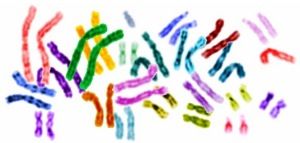News
Research project maps shared Danish genome
This article is more than 8 years old.
New Danish research will enhance our understanding of hereditary diseases

New genetic research could result in new and improved medicines being developed (image: Wikimedia/Webridge)
Researchers from three different universities – two in Denmark, one in China – have analysed the genomes of 50 families.
The fruits of their research has resulted in a new body of knowledge called the Danish Reference Genome.
READ ALSO: Scientists break genetic code for diabetes in Greenland
Professor Anders Børglum of the department of biomedicine and the centre for iSequencing at Aarhus University says the new reference genome can be used to enhance personalised medicine – for example, for mental disorders.
Providing a greater understanding
In future, he will be able to consult the genome and see whether the genetic variation that he suspects of contributing to a mental disorder is normal amongst healthy Danes or whether it is deviating from the norm.
“Discovering genetic variants that increase the risk of mental illness can also help give us a greater understanding of the biological mechanisms behind the disease, as the genes can put us on the right track,” explained Anders Børglum.
A long road
The work on sequencing the gene has taken five years.
Professor Søren Brunak from the Technical University of Denmark (DTU), one of the other universities involved in the project, says that further research is needed to establish causative relations between many of the new genotypes discovered and a disease.
“However, due to our strong research tradition, comprehensive health registers and existing biobanks, we are uniquely positioned to couple genomics and other types of health data on a large scale.”










































